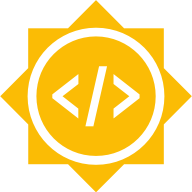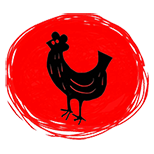Spending this summer in GSoC with Red Hen Lab


I am thrilled to announce that I will be participating in GSoC this year with Red Hen Lab. My mentors for this project will include Professor Mark Turner and Professor Ahmed Abdelfattah, among others.
My project for this summer, titled Arabic Speech Recognition and Dialect Identification will involve building a speech recognition system for dialectic Arabic, which we will use to transcribe the Television news broadcast captured by Red Hen in Egypt. It also includes building a system for Arabic dialect identification. To do both tasks, we intend to follow the architectures proposed by the winning teams in the MGB-3 Arabic tasks[1].
MGB is a challenge that involves producing state-of-the-art systems for speech recognition and multiple other speech-related tasks in order to be used on TV broadcast recordings (i.e.: the challenge organizers are telling you, “Hey, this is the cleanest data you could ever work on. You got no excuses”).
We intend to use the data from the 2016 and the 2017 MGB challenges to build our system.
The Data
MGB-3 (held in 2017) included a task for building a speech-to-text system for dialectic Arabic and a task for building Arabic dialect identification system. For each of the tasks in the challenge, MGB provided huge amounts of data for training. The data from MGB 2016 and 2017 related to speech recognition included:
- 1,200 hours from Al-Jazeera (including 8.3M tokens of in-domain data from the transcripts)
- 5 hours of Egyptian adaptation data from Youtube (including 170k tokens from the transcripts)
- 110 million words-corpus obtained from the Al-Jazeera Arabic website for language modeling.
As for the 2017 Arabic dialect identification, the task was to differentiate between five dialects: Egyptian, Levantine, Gulf, North African, Modern standard Arabic. The data included
- 50 hours of labeled recordings belonging to the different dialects.
- Lexical features
- i-vector bottleneck features
Our Plan
The best dialectic Arabic speech recognition accuracy in MGB-3 was obtained by the team from Aalto univeristy[2], while the best dialect identification accuracy was obtained by the MIT-QCRI team[3]. We intend to follow the architecures proposed by these teams.
A follow-up post will include information about the architectures, and I intend to post regularly on my progress throughout the program, so stay tuned!
Thank you for reading, and wish us luck!
References
[1] A. Ali, S. Vogel, and S. Renals, “Speech recognition challenge in the wild: Arabic MGB-3,” in 2017 IEEE Automatic Speech Recognition and Understanding Workshop (ASRU), 2017.
[2] P. Smit, S. Gangireddy, S. Enarvi, S. Virpioja, and M. Kurimo, “Aalto system for the 2017 Arabic multigenre brodcast challenge,” in ASRU, 2017.
[3] S. Shon, A. Ali, and J. Glass, “MIT-QCRI Arabic dialect identification system for the 2017 multi-genre broadcast challenge,” in ASRU, 2017.